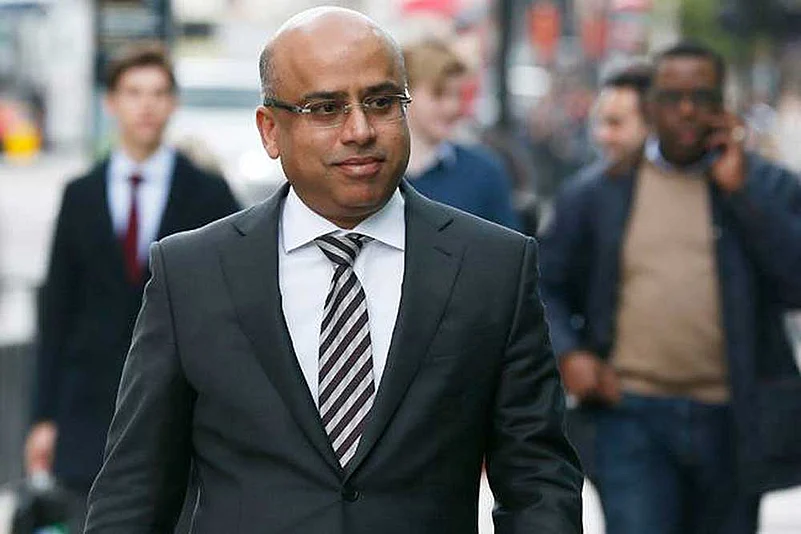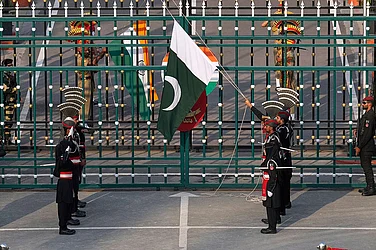In an atmosphere of crisis in the global steel industry and specifically in the UK, where topmost Indian-origin steel tycoons like Mr LN Mittal and Lord Swraj Paul have seen their fortunes dwindle, a commodities trader looks set on the road to become the next steel tycoon. Sanjeev Gupta of Liberty House has already become a name to reckon with within the industry since completing the acquisition of former Tata Steel plate making facilities at Dalzell and Clydebridge in Lanarkshire, Scotland.
Gupta’s approach to business and his evident drive came from his days as a student at Trinity College, Cambridge, where he reportedly started Liberty House and began turning over £1m a day, carrying out all his business activities from his dorm. All this got noticed when hostel telephone bills shot up noticeably, for which the dons asked him to leave the room, as it was against the rules to carry out business from a charitable institution.
The then fledgling company has come a very long way. Mr Gupta, 44, now heads a private multinational steel and commodities business headquartered in London, Dubai and Singapore with more than £3bn in sales. Now, with his eyes set on acquiring the remaining loss-making UK assets of Tata Steel, Gupta took time out to speak to Nabanita Sircar about his plans for Tata Steel and his next business expansion in India.
What is your plan for Tata Steel?
Assuming, we get through to the next round, we have put together a very extensive team and they will get to work in terms of doing the analysis.
What are the changes you plan to make, if you win the bid? Will you be bringing about radical changes by closing down the blast furnaces and replacing them with electronic mini mills using domestically generated steel scrap?
Yes, those are exactly the sort of things we will analyse in detail. Our bid is based on that change and subject to our due diligence on that and working out that it all adds up.
How confident are you of government help?
The government is willing to find solutions. Whatever solutions they are able to find within the confines of state aid they will definitely look at.
There have been concerns about the pension fund which many feel would be a sticky point for most bidders?
What we are saying that that’s one of the big pieces that needs to be resolved. And the resolution of that is one of the key points pending.
Would this acquisition help revive Welsh steelmaking, or as cynics suggest, you may be wanting to lock out competitors who could bid up prices for Tata’s distribution plants and rolling mills?
No, its been our commitment and which has been the requirement of continuing the business as it is and finding viable solutions there. Compared to the lost making blast furnaces our feeling is that since there is abundant local raw material available and there will be viable solution to melt.
How confident are you about your bid? And by when do you think it will be decided?
Our business model is unique and it’s a model which turns a loss-making business into a profit-making business. That proposition is unique. I don’t know of anybody who has the same constellation of businesses. You know we have an energy business and a power plant in UK which is critical, we have a financial services business which would help greatly. We have an existing network of steel operations in the UK. And we have a good understanding of the supply chain, better than most. For example, if we have to do a blast furnace change that would require handling the supply chain of scrap which is not an easy proposition, it basically requires a trading house to do that. We have a trading house which is 25 years in its existence. So I think with all theses businesses coming together makes it a unique possibility, which is why we are excited about it – it’s a unique ability, lets say, to transform something which is so heavily loss-making to something which will be profitable. So that makes us confident, but that doesn’t mean that other bidders will not have their own plans which may be good too. Tata is keen on accelerating this process so one would hope they will revert very quickly.
What about the huge workforce that comes with the deal, which has been a matter of great concern?
I have made it clear that if we succeed we embark upon this with the workforce, which is what I did with with Newport. We had to keep it closed for almost two-and-a-half – three years but we kept all the workers on its rolls. I would not undertake an exercise if it required big changes in that.
In the face of the Chinese competition what makes you optimistic that you can turn around the plants given that Tata with all its expertise and funds failed?
That is exactly the point why it needs a step change. If it was that simple, as you say, Tata, with all the resources would have done it. But it requires a new model which we are proposing, it is to recycle domestic scrap which would be exported to countries like China, for example. We have the domestic raw material which is competitive.
What is your short term and long term expectations on the global steel demand and price trends?
I think this crisis will continue, although there is a price spurt now, fundamentally this industry will remain challenged for a few years. For the long-term and medium-term it looks good, steel consumption can only grow in the world. There is a lot of urbanisation taking place in the world especially in places like India. So eventually steel demand will grow but for the next few years it will be tough.
Apart from your family’s business in India does Liberty House have any plans to invest in India given the Indian government’s push to manufacturing under Make in India?
We are very interested, but the challenges of India and the recent years of turbulence in India are an impediment but we are definitely very interested and we will examine options in all our business verticals, but the timing of it will be determined by how it evolves in India. We have four business verticals and we are interested in doing business in all four in India. We are constantly examining and negotiating options but the timing will be determined by how we perceive India is evolving.
How long is that timing?
Our intensity of examination has increased, let’s put it that way. We are looking at things more and more closely. I believe we will take steps, certainly in two of the areas we are looking at, we are interested in taking steps perhaps quicker than the other two. There are four or five sectors we are interested in, one is steel, where we are examining a couple of options. They are challenging, there are several stressed steel assets in India which are available for restructuring so we are engaged in examining some of them but we haven’t made a bid for any of them yet.
Then there is the financial services sector, which we are very interested in. There are one or two specific things which we are negotiating which I think will happen. I can’t talk about them right now. Then we have the engineering business we hope to process in developing. And then last but not the least, our energy business, within which we are very interested in investing in the tidal lagoon business. We invested in tidal lagoon power in the UK. We are in talks with the state government of Gujarat for tidal lagoon power in India. That is something we are very keen on and will be taking up with the government of Gujarat as well. In India, tidal lagoon is something we will do, steel, I am not sure, in financial services definitely we will do something, in engineering i.e. components etc there are prospects.
Sanjeev Gupta
















